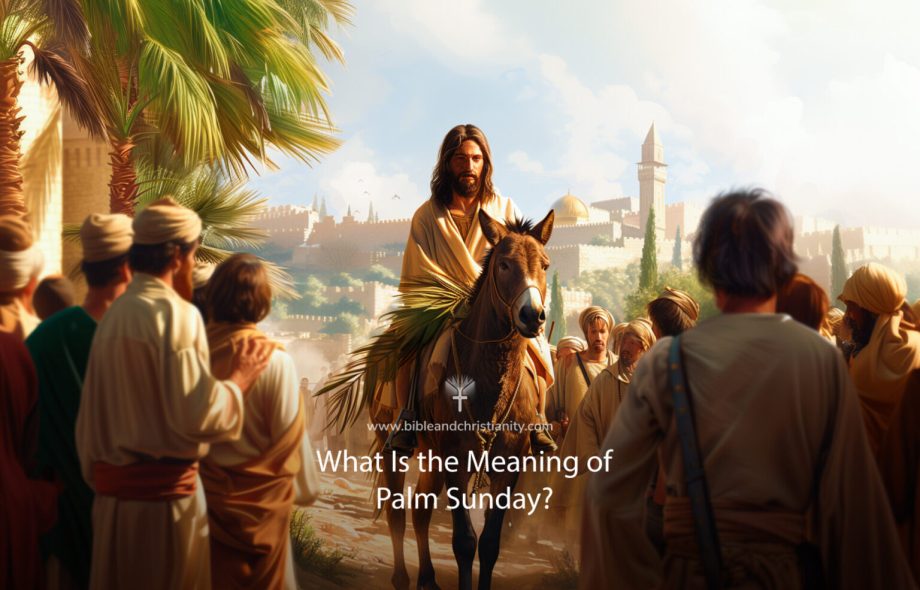Palm Sunday marks the beginning of an important and sacred time in the Christian calendar—the Holy Week, leading up to Easter Sunday. The meaning of Palm Sunday can be drawn from the Bible and the observances of the Catholic, Protestant, and Orthodox churches, where this commemoration is celebrated.
While these denominations may celebrate on different dates (considering the Orthodox Church follows the Julian calendar), the significance of Palm Sunday is still universal. On this day, the congregation engages in traditions like waving palm branches and processional walks outside the church to commemorate Jesus’ triumphant entry into Jerusalem.
Here, we will examine the meaning of Palm Sunday and why it holds such an important place in Christian tradition.
Biblical Meaning of Palm Sunday

All the four canonical Gospels record the biblical events that inspired Palm Sunday. However, each provides a slightly different perspective on the biblical meaning of Palm Sunday.
Let’s explore the narratives, highlighting the differing perspectives of the authors and the significance they suggest about the meaning of Palm Sunday.
Mark and John
In Mark 11:1-3, the Bible recounts Jesus’ instruction to His disciples to bring Him a donkey:
When they came near to Jerusalem, to Bethphage and Bethany, at the Mount of Olives, he sent two of his disciples, and said to them, “Go your way into the village that is opposite you. Immediately as you enter into it, you will find a young donkey tied, on which no one has sat. Untie him, and bring him. If anyone asks you, ‘Why are you doing this?’ say, ‘The Lord needs him;’ and immediately he will send him back here.” (Mark 11:1-3)
The disciples did as instructed, and as recorded in all other narratives, the scene of Jesus’ arrival at Jerusalem as He rode on the donkey was nothing short of glorious.
Some even spread their garments on the way for Jesus to walk on. This is more like the contemporary red carpet welcome that dignitaries receive in special events today. According to John’s account, the people took palm branches and kept shouting, “Hosanna! Blessed is he who comes in the name of the Lord, the King of Israel!”
Luke

The biblical event of the first Palm Sunday also fulfilled some Old Testament prophecies. Matthew 21:4 records that Christ’s triumphant entry took place to fulfill what was spoken by the prophet:
‘Say to the daughter of Zion, ‘Behold, your king is coming to you, humble, and mounted on a donkey, on a colt, the foal of a beast of burden.’”
This prophecy, taken from Zechariah 9:9 and Isaiah 62:11, underlines the significance of Jesus’ entrance into Jerusalem on a donkey. At that time, the people were anticipating a revolutionary leader—a politician or warrior of sorts—to emerge and overthrow the then-prevalent Roman rule. But Jesus’ mission was far greater.
He did not come to overthrow or conquer man-made governments; instead, He came to conquer sin, death, and the devil by offering himself as a living sacrifice—the sacrificial Passover lamb.
His triumphant entry into Jerusalem set the ball rolling, heralding the events that led up to His crucifixion, where He eventually triumphed over the forces that bound humanity since the fall of Adam and Eve.
Know more https://bibleandchristianity.com/spirituality/palm-sunday/












